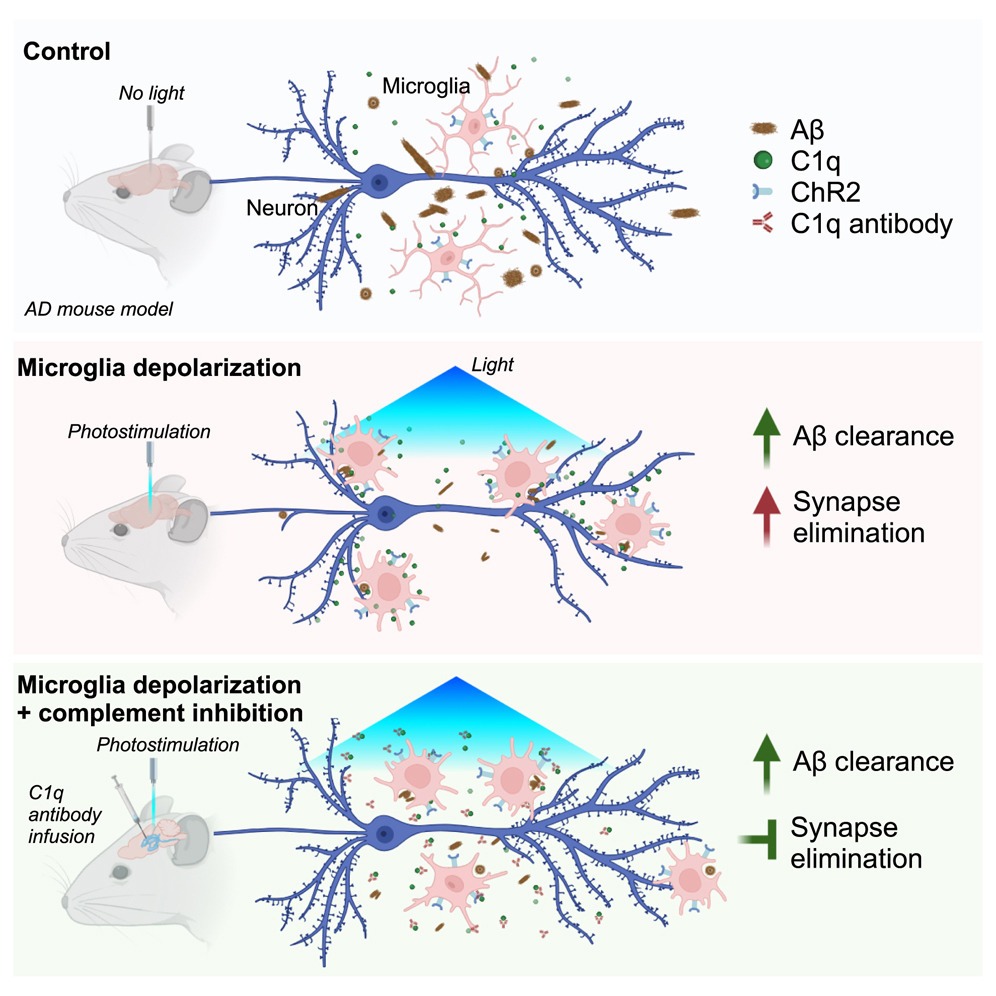
Recently, Prof. ZHAN Yang's team at the Shenzhen Institute of Advanced Technology (SIAT) of the Chinese Academy of Sciences developed a novel neuromodulation strategy targeting microglia, which effectively clears amyloid beta, a pathological protein associated with Alzheimer's disease. The study was published in Neuron.
Using optogenetic techniques, the team activated microglia and observed a remarkable clearance of β-amyloid (Aβ) toxic proteins in the brain parenchyma. Prof. ZHAN explained that optogenetic activation of these immune cells effectively promotes Aβ clearance despite challenges in stably manipulating microglia. However, this method leads to the synapse loss and damage to other neurons.
To mitigate this "double-edged sword" effect, the team combined optogenetic microglial activation with the inhibition of the complement pathway molecule C1q in an Alzheimer's disease mouse model. This combination not only cleared Aβ toxic proteins without causing synapse loss but also provided insights into regulating microglia effectively.
This study highlights the potential of stimulating microglia to enhance their phagocytic function, accelerating Aβ clearance in Alzheimer's disease. It paves the way for new neuroprotective strategies that contribute to understanding Alzheimer's pathological mechanisms and treatment development.
Looking ahead, Prof. ZHAN's team aims to delve deeper into the mechanisms behind enhanced microglial phagocytosis through light stimulation. It also plans to explore various neuromodulation strategies for other neurodegenerative diseases.

Clearance of β-amyloid and synapses by the optogenetic depolarization of microglia is complement selective. (Image by SIAT)

86-10-68597521 (day)
86-10-68597289 (night)

86-10-68511095 (day)
86-10-68512458 (night)

cas_en@cas.cn

52 Sanlihe Rd., Xicheng District,
Beijing, China (100864)

